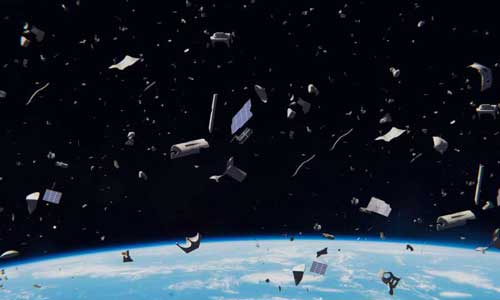Washington: The United States is tracking 250-270 objects of debris in the space generated due to India’s anti-satellite (ASAT) missile test in lower earth orbit, but the International Space Station or ISS is not at risk, the Pentagon said Friday.
The US Strategic Command’s Joint Force Space Component Command (JFSCC) said 250 pieces of debris associated with an Indian ASAT launch that occurred Wednesday are being actively tracked.
“Debris from the event is being actively monitored by the JFSCC, and conjunction notifications are being issued to satellite owners/operators in accordance with standard notification processes through the Department of Defence’s public space situational awareness sharing website hyperlink ‘http://www.space-track.org’, the body stated.
The JFSCC said it will continue to actively track debris and issue close approach notifications as required until the debris enters the earth’s atmosphere.
US Air Force Space Command Commander Lt Gen David D Thompson told lawmakers during a Congressional hearing Thursday that the JFSCC and Air Force’s 18 space control Squadron are currently ‘tracking about 270 different objects in the debris’ field. Thompson, however, refrained from giving any further details of the debris.
Responding to questions from lawmakers, Thompson said, “At this point in time, the International Space Station is not at risk.” It should be stated here that the ISS orbits over 100 km higher than the orbit at which India carried out the ASAT test.
Astronomer Jonathan McDowell from the prestigious ‘Harvard-Smithsonian Centre for Astrophysics’ said India acted in a ‘less irresponsible manner’ than the Chinese in doing the test.
“We don’t know yet how much debris and how high. The United States has said that it’s tracking about 250 pieces. But it will take them at least a few days, if not a few weeks to figure to catalogue those pieces,” McDowell told this agency Friday. “Once the cataloging is done, only then one could analyse how bad the situation is,” he added.
Opposed to such tests, McDowell said, the Indian ASAT test was ‘relatively responsible’ or ‘less irresponsible’ than the Chinese ASAT test.
“Although I’m opposed to the test, I think that if you’re going to do a test, that’s a better way to do it. There will be debris that ends up in higher orbit but not as much and not as long left. The test at level will ensure that the debris doesn’t stay up for long periods of time, in contrast to what happened with the Chinese test, which was much higher up,” McDowell pointed out.”So that is relatively responsible. Certainly they (Indians) have learned from the mistakes of the Chinese,” added the American astronomer.
PTI






































